Trading performance at Britain’s biggest bread brands has been a mixed bag of late, coming off the back of a challenging year marred by inflationary pressures.
But as the economy recovers, what does the future hold for the likes of Warburtons, Hovis and co? Where are opportunities and how are they tapping into them? And what does the competitive landscape look like for the year ahead?
“Shoppers are moving away from the more traditional ambient bread loaves”
Before we dive into the individual achievements and plans, it is worth exploring the performance of the bread market over the past few years and how the brands fit into it.
Value is up 7% to £2.2bn, according to Kantar data for the 52 weeks to 17 March 2024, although this is predominantly driven by rising prices as volumes were down 0.7% year on year. The average price of a loaf has increased from £1.19 (for the year ending 17 March 2023) to its current £1.29.
Shifting consumer habits are also a reason for the value increase. “Shoppers are moving away from the more traditional ambient bread loaves, especially the brown and half and half loaves,” explains Lewis Kain, consumer insight director at Kantar. “Instead, they are looking for alternative options and are switching into tortilla wraps, bagels, and pitta bread as options for their sandwich carrier.”
Half & half was the worst performing bread category with volumes plummeting by 15.1% from last year’s levels, while grained and brown dropped by 14.4% and 12.4%, respectively. Volume figures for sourdough, which include both branded and in-store bakery loaves, were up by 4.3% although it was still the lowest selling bread category, shipping around 26.3m packs.
The aforementioned migration of consumer preferences towards the speciality bread sector was reflected in Kantar data, which showed unit growth of the pitta bread (+7.8%), tortilla wraps (+4.3%), and bagels (+4.1%) categories, and most impressively flatbreads (+33.1%).
As to be expected, white remained the most popular category by quite some distance, improving by 2.1% year-on-year to top 1.1bn packs sold.

Warburtons
“The staple white sliced bread is most certainly not dead,” declared Warburtons chairman Jonathan Warburton last June, at a time when sales of all other styles of loaf were in decline as demand for white bread surged due to the cost-of-living crisis.
Notably, the UK’s biggest bread brand sought to put its white Toastie loaf front and centre in its most recent marketing campaign starring Samuel L Jackson, who followed in the footsteps of fellow A-listers George Clooney, Robert De Niro, and Sylvester Stallone to name a few.
The ad hit the air following a tricky financial period for the firm, which saw soaring commodities and delivery driver costs slice 43% off its operating profits for the 52 weeks ending 24 September 2022. Sales appear to be on the rise at least, with NiQ data for the year to 31 December 2023 (as reported in The Grocer’s recent Britain’s Biggest Brands) showing sales growth of 13.5% to £867m. With inflation abating, figures for the Bolton-headquartered may be much improved when it posts its latest annual accounts in a few months’ time.
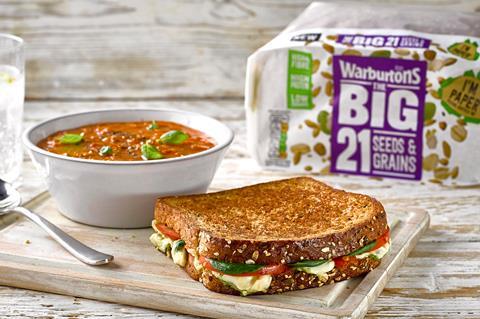
Warburtons said investment was focused on enhancing its capability to changing consumer trends and deliver productivity, with notable launches including several additions to its gluten-free range, as well as a range of sliced loaves under the branding Seeds & Grains.
The latter reflects Warburtons desire to tap into health-driven products. In his comments regarding opportunities for 2024, Warburtons sales director Colin Bebbington noted that “consumers continue to look for products with additional health benefits such as seeds, grains, fibre and in particular protein”. This was evidenced by volume sales of Protein Thin Bagels shooting up by 53% (latest 12 weeks vs last year) to currently be outperforming its Original Thin Bagels.
Bebbington also revealed Warburtons would be launching Protein Power loaves in the early part of this year. Billed as high in protein and low in saturated fat and sugars, the 100% wholemeal bread featuring 12 pulses, grains, and seeds has now been rolled out to supermarkets including Tesco, Asda, Morrisons, and Co-op, with Sainsbury’s and Iceland introducing it the coming months.
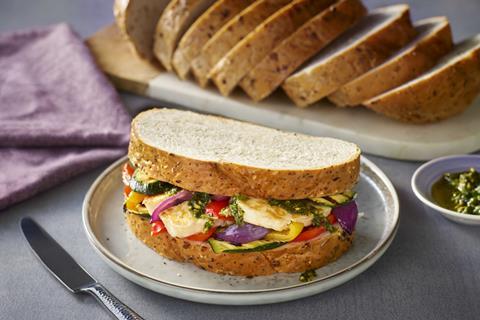
Hovis
Health is high up the agenda for Hovis as well, with the company recently signing an exclusive a three-year licencing agreement with Oxford-based start-up Modern Baker to create new gut-healthy bakery products. This was said to be a natural extension of their existing partnership, which had led to the development and launch last year of Superloaf 5.0.
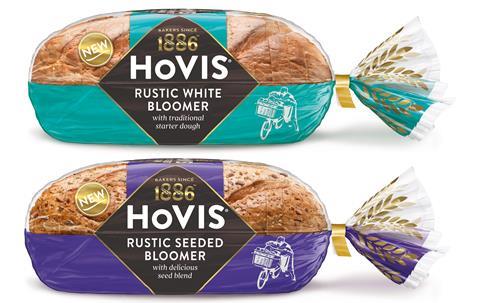
New management installed at Hovis has helped guide it back into profitability during FY23 after a £24.5m loss the previous accounting period. Revenue was catapulted up to £489m, but this could be largely explained by pack price increases with NiQ data revealing a 10.5% drop in volume.
Hovis is also vying for a larger slice of the premium bread market having launched its Bakers Since 1886 Rustic Bloomers range last September, which grew 35% in value by the end of the year according to NiQ data. “Even in tough economic times, shoppers are still seeking interesting and inspiring, quality bakery offerings to elevate mealtimes at home,” noted the supplier.
To support volume growth in its core bread business this year, Hovis has kicked off a £2m advertising campaign voiced by actor Christopher Ecclestone. Featuring its well-known strapline ‘As good today as it’s always been’, activities are being rolled out across TV, radio, PR, social and influencers.
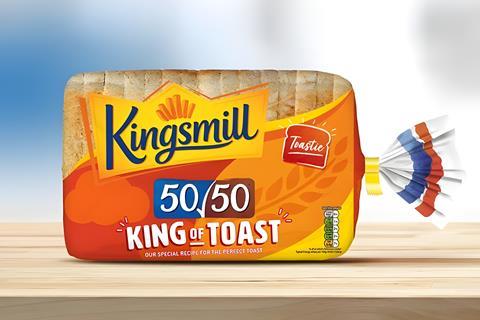
Allied Bakeries
The manufacturer behind bread brands Kingsmill, Allinson’s and Sunblest also reported improvements to its bottom line in 2023. Higher volumes, stronger pricing, and operational enhancements helped reduce its losses during the financial period (52 weeks to 16 September 2023). These helped the grocery segment of its multinational owner ABF increase both its turnover and adjusted operating profit by 12% to £4.2bn and £448m, respectively.
“Looking back on the year, it is clear to me that the Group performed extremely well and is as a result now well positioned for the year ahead,” declared ABF chief executive George Weston.
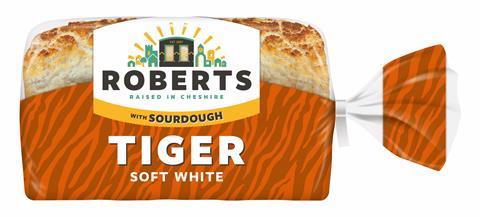
Roberts Bakery
Cheshire-based brand Roberts bounced back strong from the fire which ripped through part of its Northwich site last June, announcing a major shakeup of its production facilities just a few months later. This includes the relocation of its Little Treats division to nearby Winsford and a significant rebuild of two bakeries within its Northwich headquarters.
“As part of the investment plan, we will establish three Centres of Excellence; one for biscuits, one for bread, and another for speciality breads,” said Bill Thurston, managing director at Roberts Bakery. “We believe this will revitalise the company and ensure it is fit for the future.”
Roberts is tapping into the UK’s continuing love for Italian-style products – as highlighted in Délifrance’s research on the bread market – recently launching four-packs of ciabattas and twin-packs of paninis, along with deli-style rolls in white, wholemeal, and multi-seed varieties.
Interestingly, this Italian trend wasn’t completely backed up by latest Kantar data, with ciabatta down 4.8% in volume to join crusty loaves (-10.3%) as the only two losers in the speciality bread sector.
Roberts also noted that shoppers were looking to food staples to provide more of the functional health benefits they need. Fermented products (e.g. sourdough) and ancient grains were also being used to shape its latest launches, like the new Tiger Loaves with Sourdough or Multi Wheat Grain Bloomers.
While some consumers have been trading up to speciality breads, others have been trading down from brand to own label to help mitigate cost-of-living pressures – according to Circana data for the 52 weeks to 27 January 2024, own label bakery has grown by 11% in value and 1.8% in volume.
Roberts said that by operating across brand, own label, and foodservice, and with an omnichannel supply, it could glean insights from all areas of the bakery market. “We believe that there is a strong demand for both brand and own label in the current climate, as brand connects emotionally and delivers consistent high quality where own label can provide products for budget conscious consumers,” commented Thurston.

Geary’s Bakeries
The Leicester-based firm – producer of the Jason’s Sourdough range – is providing some stiff competition in the supermarket premium pre-packed bread segment, which is said to be currently worth £85.7m and growing by over a fifth year-on-year.
Jason’s claims to be more than twice the size of any other brand in the segment, having racked up sales of £23.7m for the 52 weeks ending 21 January 2024 (as per Kantar data), representing value growth of 132%.
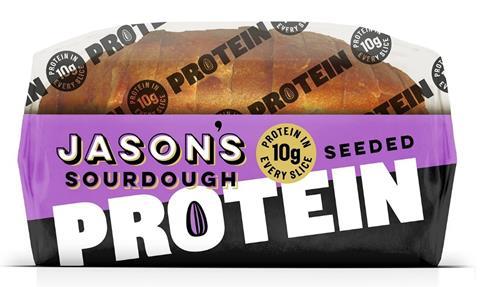
The rocketing popularity has spurred Geary’s decision to spend £8m on a new 95,000 sq ft production site, located across from its existing bakery and expected to be operational around Q2 of 2025. “This investment in our facilities and capacity will allow us to future-proof the growth of the business and continue to develop and deliver quality sourdough to households around the UK,” said Jason Geary, a fourth-generation master baker and managing director of Geary’s Bakeries.
Furthering its health and nutrition credentials is the latest expansion of the Jason’s sourdough range, a high protein seeded loaf boasting twice as much protein and nearly half the carbs of its White Ciabattin.



















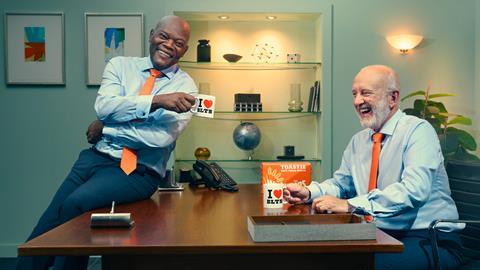
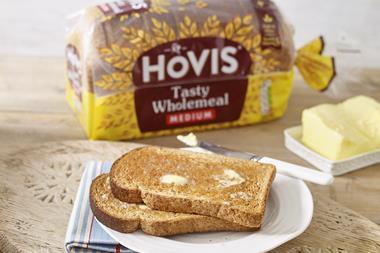
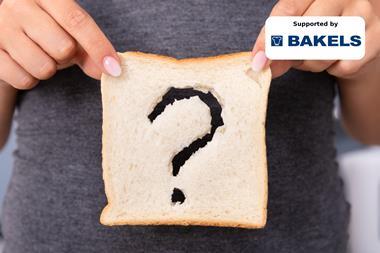
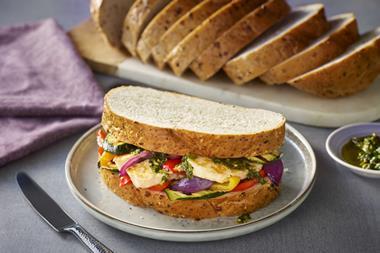
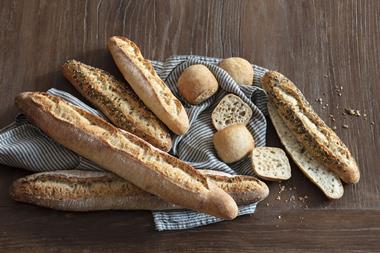



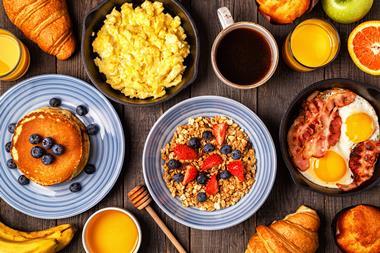

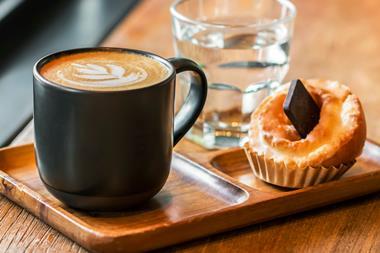

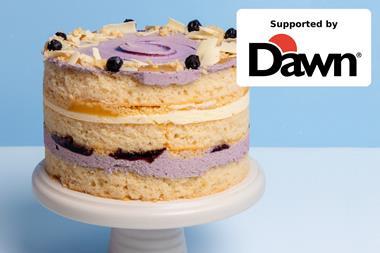

No comments yet